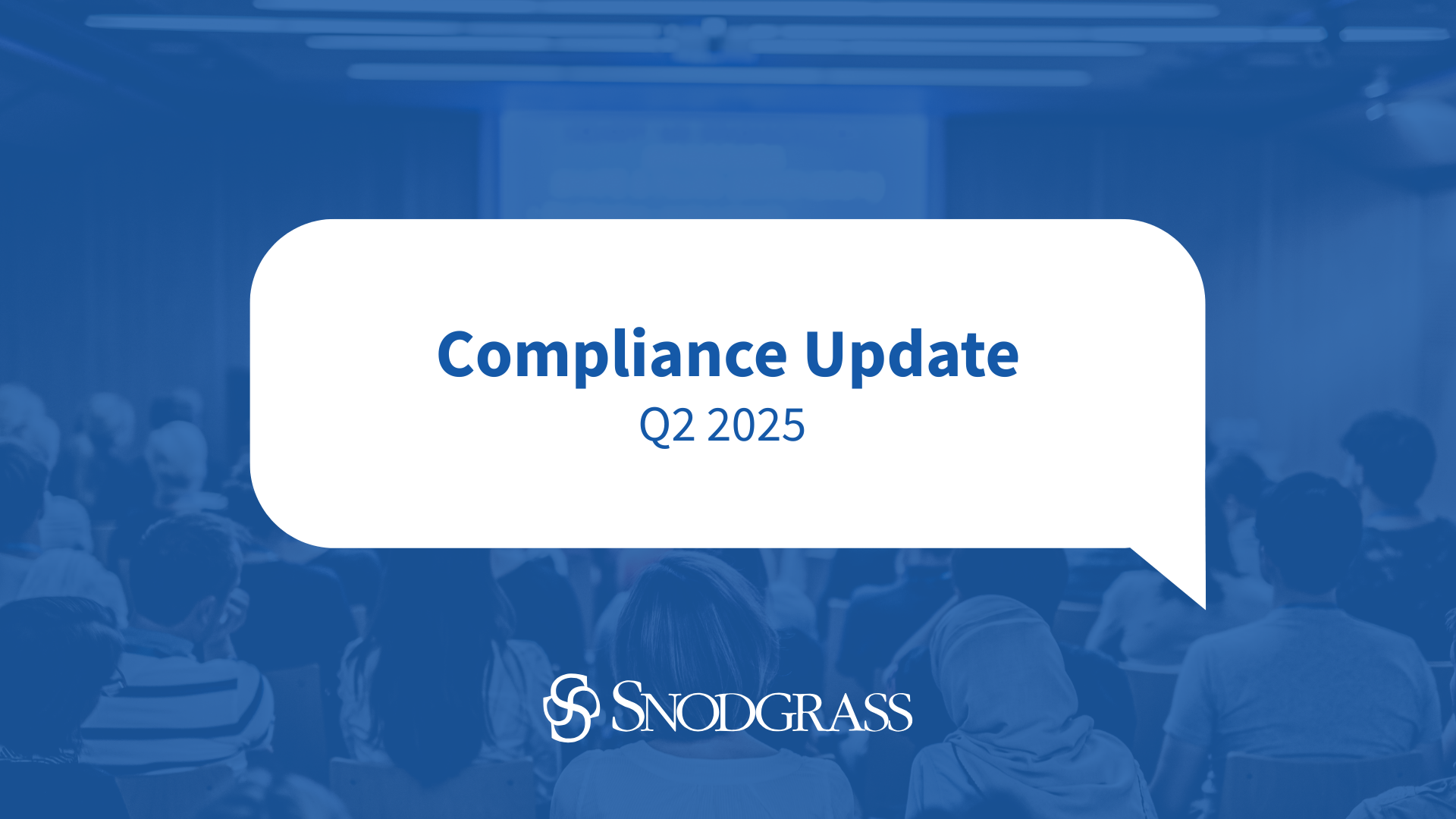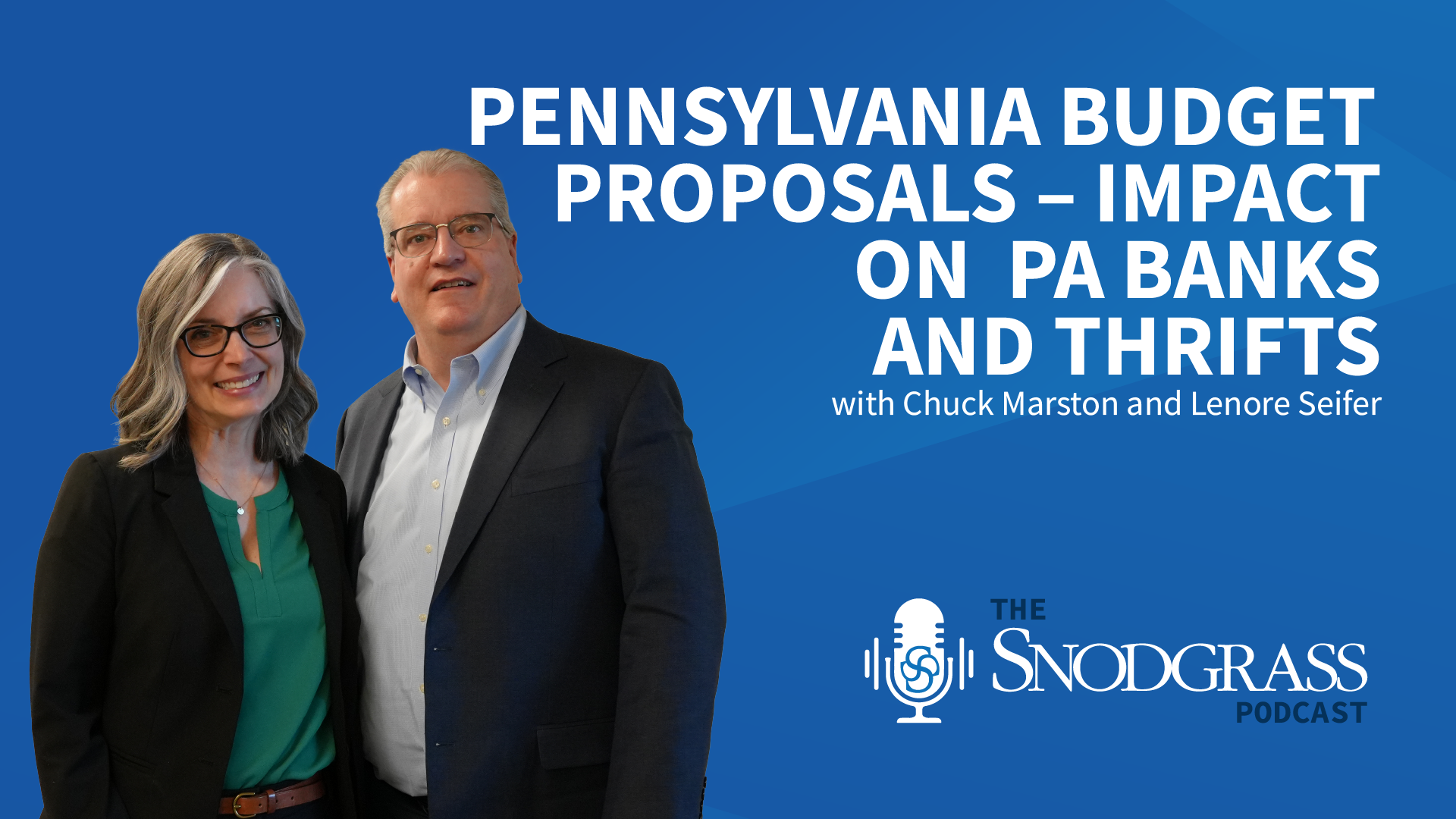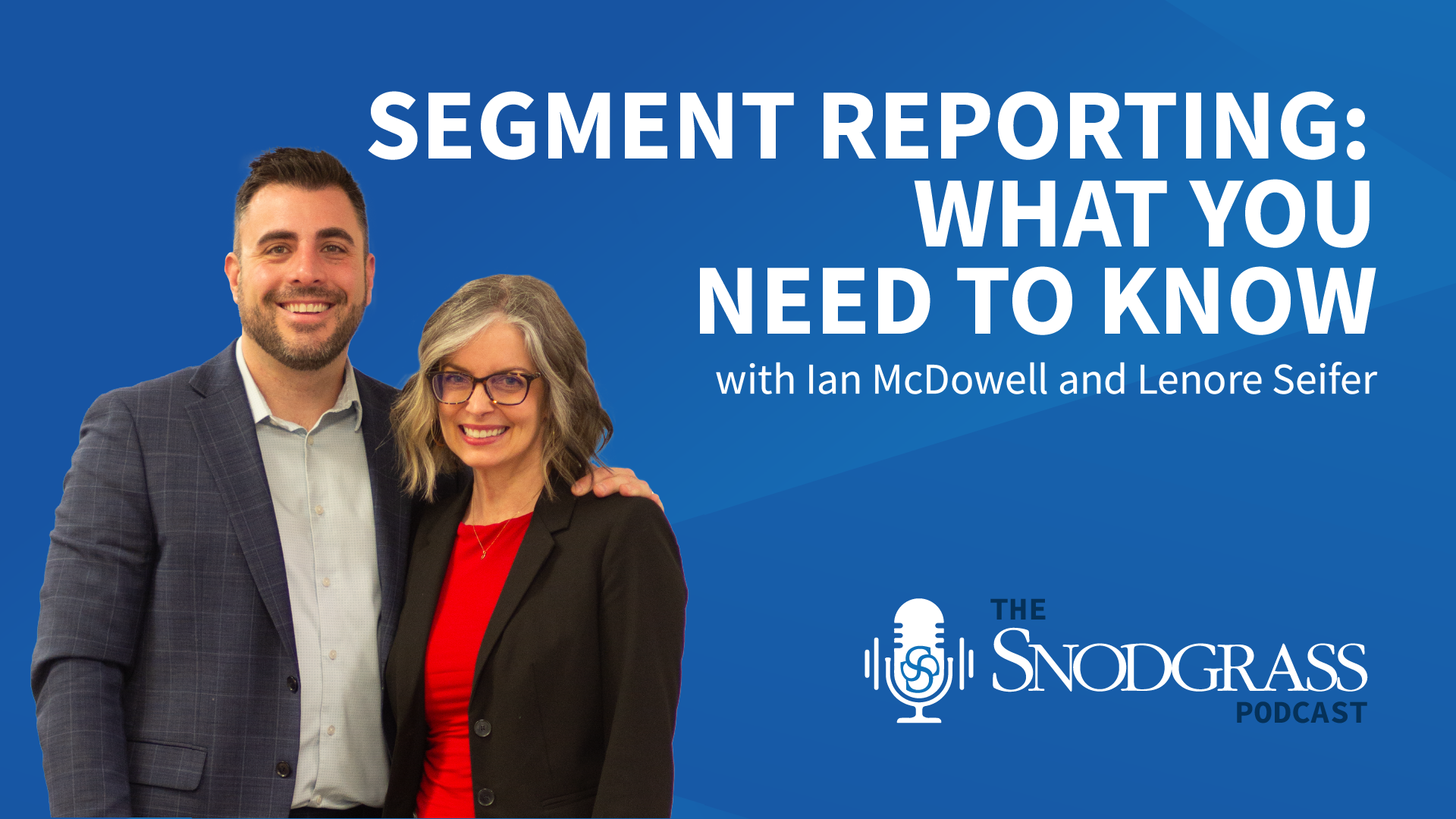Consumer Financial Protection Board (CFPB) Issues Report: Overdraft and Nonsufficient Fund (NSF) Fees
The CFPB issued a new report finding that many consumers are still being hit with unexpected overdraft and NSF fees, despite recent changes implemented by banks and credit unions that have eliminated billions of dollars in fees charged each year. In a recent CFPB Making Ends Meet survey, more than a quarter of consumers responded that someone in their household was charged an overdraft fee or NSF fee within the past year, and that only 22 percent of households expected their most recent overdraft. Many consumers who were charged overdraft fees had access to a cheaper alternative, such as available credit on a credit card.
Key findings from surveyed households and consumers in the report include:
- Households frequently incurring overdraft and NSF fees are more likely to struggle to meet their financial obligations
- Many consumers do not expect overdraft fees
- Most households incurring overdraft fees had available credit on a credit card
- Households face a substantial overlap in being charged overdraft and NSF fees
- Low-income households are hit the hardest by overdraft and NSF fees
Agencies Extend Applicability Date of Certain Provisions of Their Community Reinvestment Act Final Rule
On March 21, 2024, the federal bank regulatory agencies issued an interim final rule that extends the applicability date of certain provisions in their CRA final rule issued in October 2023. To promote clarity and consistency, the agencies extended the applicability date of the facility-based assessment areas and public file provisions from April 1, 2024, to January 1, 2026. Therefore, banks will not have to make changes to their assessment areas or their public files (this includes the requirement to make the public file available on the Bank’s website) as a result of the 2023 CRA final rule until January 1, 2026. This extension aligns these provisions with other substantive parts of the 2023 CRA final rule that are applicable on January 1, 2026. For example, all provisions about where banks are evaluated will now apply on the same date. Comments on the extended applicability date must be received 45 days after the rule is published in the Federal Register.
https://www.federalreserve.gov/newsevents/pressreleases/bcreg20240321a.htm
Federal Deposit Insurance Corporation (FDIC) Finalizes Rule to Modernize Official Signs and Advertising Statement Requirements
The FDIC Board of Directors adopted a final rule to amend part 328 of its regulations to modernize the rules governing use of the official FDIC signs and advertising statements, and to clarify the FDIC’s regulations regarding false advertising, misrepresentations of deposit insurance coverage, and misuse of the FDIC’s name or logo.
The final rule modernizes requirements for display of the FDIC official sign in bank branches and other physical premises to account for evolving designs of bank branches and other physical bank locations where customers make deposits. Also, the rule requires the use of signs to differentiate insured deposits from nondeposit products across banking channels and to indicate that certain financial products “are not insured by the FDIC, are not deposits, and may lose value.”
The final rule establishes a new black-and-navy-blue FDIC official digital sign. Beginning in 2025, banks will be required to display the FDIC official digital sign near the name of the bank on bank websites and mobile applications. Banks also will be required to display the FDIC official digital sign on certain automated teller machines.
The final rule clarifies the FDIC’s regulations regarding misrepresentations of deposit insurance coverage by addressing specific scenarios where a person, including a non-bank entity, provides information to consumers that may be misleading, confuse consumers as to whether they are doing business with a bank, and whether their funds are protected by deposit insurance.
Financial Crimes Enforcement Network (FinCEN) Publishes Final Rule on Beneficial Ownership Information (BOI) Data Access and Safeguards
FinCEN issued a final rule regarding access by authorized recipients to BOI that will be reported to FinCEN pursuant to section 6403 of the Corporate Transparency Act (CTA), enacted into law as part of the Anti-Money Laundering Act of 2020 (AML Act), which is itself part of the National Defense Authorization Act for Fiscal Year 2021 (NDAA). The regulations implement the strict protocols required by the CTA to protect sensitive personally identifiable information reported to FinCEN and establish the circumstances in which specified recipients have access to BOI, along with data protection protocols and oversight mechanisms applicable to each recipient category. The disclosure of BOI to authorized recipients in accordance with appropriate protocols and oversight will help law enforcement and national security agencies prevent and combat money laundering, terrorist financing, tax fraud, and other illicit activity, as well as protect national security. The rules became effective on February 20, 2024.
FinCEN also issued interagency statements for banks and non-bank financial institutions on the issuance of the BOI Access Rule, which stated that the Access Rule does not create a new regulatory requirement for banks or non-banking financial institutions to access BOI from the BO IT System, or a supervisory expectation that they do so. The statement said that any access to and use of BOI obtained from the BO IT System must comply with the requirements of the CTA and the Access Rule.
A Fact Sheet on Beneficial Ownership Information Access and Safeguards Final Rule was issued by FinCEN that covers the following topics: The Access Framework, Authorized Recipients, Security and Confidentiality Requirements, Re-Disclosure of BOI by Authorized Recipients, Violations and Penalties, Implementation of BOI Access, and Next Steps.
Home Mortgage Disclosure Act and Regulation Z Exemption Thresholds Updated
The CFPB issued a final rule to amend the commentary to Regulation C that adjusts the asset-size exemption threshold. The new threshold has been adjusted to $56 million from $54 million; therefore, banks, savings associations, and credit unions with assets of $56 million or less as of December 31, 2023, are exempt from collecting data in 2024.
The CFPB also amended the commentary to Regulation Z for annual adjustments to the asset-size thresholds exempting certain creditors from the requirement to establish an escrow account for a higher-priced mortgage loan. For certain first-lien higher-priced mortgage loans, the exemption threshold is adjusted to increase to $2.640 billion from $2.537 billion. Therefore, creditors with assets of less than $2.640 billion (including assets of certain affiliates) as of December 31, 2023, are exempt, if other requirements of Regulation Z also are met, from establishing escrow accounts for higher-priced mortgage loans in 2024. Also, for certain insured depository institutions and insured credit unions meeting certain conditions, including an asset-size exemption threshold, the exemption threshold is adjusted to increase to $11.835 billion from $11.374 billion. Therefore, insured depository institutions and insured credit unions that during calendar year 2023 had assets of $11.835 billion or less on December 31, 2023, will meet the asset-size exemption threshold for purposes of any loan consummated in 2024 and for purposes of any loan secured by a first lien on a principal dwelling of a consumer consummated in 2025 for which the application was received before April 1, 2025.
FDIC Issues Financial Institution Letter (FIL) – Proposed Revisions to the Consolidated Reports of Condition and Income (Call Reports) and the Federal Financial Institutions Examination Council (FFIEC) 002 Report
The FDIC issued a FIL for Proposed Revisions to the Consolidated Reports of Condition and Income (Call Reports) and the FFIEC 002 Report. The proposed revisions to the reporting forms and instructions for the Call Reports and the FFIEC 002 relate to the reporting on (1) loans to nondepository financial institutions and other loans, (2) guaranteed structured financial products, and (3) proposed long-term debt requirements. The proposed revisions to the FFIEC 002 report form and instructions relate to the reporting on the loans to nondepository financial institutions and other loans. These proposed changes would be effective as of the June 30, 2024, report date, except for those related to the proposed long-term debt requirements that would take effect the same quarter as the effective date of any final rule.
https://www.fdic.gov/news/financial-institution-letters/2023/fil23068.html
FinCEN Issues Final Rule for Beneficial Ownership Reporting to Support Law Enforcement Efforts, Counter Illicit Finance, and Increase Transparency
Beneficial Ownership Information Reporting Rule Fact Sheet
The U.S. Treasury’s FinCEN took a historic step in support of U.S. government efforts to crack down on illicit finance and enhance transparency by issuing a final rule establishing a beneficial ownership information reporting requirement, pursuant to the bipartisan CTA. The rule will require most corporations, limited liability companies, and other entities created in or registered to do business in the United States to report information about their beneficial owners—the persons who ultimately own or control the company, to FinCEN. Designed to protect U.S. national security and strengthen the integrity and transparency of the U.S. financial system, the rule will help to stop criminal actors, including oligarchs, kleptocrats, drug traffickers, human traffickers, and those who would use anonymous shell companies to hide their illicit proceeds.
“For too long, it has been far too easy for criminals, Russian oligarchs, and other bad actors to fund their illicit activity by hiding and moving money through anonymous shell companies and other corporate structures right here in the United States,” said Acting FinCEN Director Himamauli Das. “This final rule is a significant step forward in our efforts to support national security, intelligence, and law enforcement agencies in their work to curb illicit activities. The final rule will also play an important role in protecting American taxpayers and businesses who play by the rules, but are repeatedly hurt by criminals that use companies for illegal reasons.”
This final rule represents the culmination of years of bipartisan efforts by Congress, the Treasury, national security agencies, law enforcement, and other stakeholders to bolster the United States’ corporate transparency framework. It addresses deficiencies in the U.S. anti-money laundering regime as identified by the Financial Action Task Force—the international standard-setting body for anti-money laundering and countering the financing of terrorism and proliferation of weapons of mass destruction standards—and delivers on commitments made by the United States ahead of the December 2021 Summit for Democracy and in the first-ever U.S. Strategy on Countering Corruption.
The rule was effective January 1, 2024. Reporting companies created or registered before January 1, 2024, will have one year (until January 1, 2025) to file their initial reports, while reporting companies created or registered after January 1, 2024, will have 30 days after creation or registration to file their initial reports. Once the initial report has been filed, both existing and new reporting companies will have to file updates within 30 days of a change in their beneficial ownership information. FinCEN is committed to implementing these statutory obligations in a robust manner while minimizing burdens on reporting companies.
The reporting rule is one of three rulemakings planned to implement the CTA. FinCEN will engage in additional rulemakings to: (1) establish rules for who may access beneficial ownership information, for what purposes, and what safeguards will be required to ensure that the information is secured and protected; and (2) revise FinCEN’s customer due diligence rule. In addition, FinCEN continues to develop the infrastructure to administer these requirements, including the information technology system that will be used to store beneficial ownership information in accordance with the strict security and confidentiality requirements of the CTA.
Fair Credit Reporting; Background Screening
The CFPB is issuing this advisory opinion to affirm that, when preparing consumer reports, a consumer reporting agency that reports public record information is not using reasonable procedures to assure maximum possible accuracy under section 607(b) of the Fair Credit Reporting Act (FCRA) if it does not have procedures in place that: (1) prevent reporting information that is duplicative or that has been expunged, sealed, or otherwise legally restricted from public access; and (2) include any existing disposition information if it reports arrests, criminal charges, eviction proceedings, or other court filings. This advisory opinion also highlights that, when consumer reporting agencies include adverse information in consumer reports: (1) the occurrence of the adverse event starts the running of the reporting period for adverse items under FCRA section 605(a)(5); (2) that period is not restarted or reopened by the occurrence of subsequent events; and (3) a non-conviction disposition of a criminal charge cannot be reported beyond the seven-year period that begins to run at the time of the charge. Consumer reporting agencies thus must ensure that they do not report adverse information beyond the reporting period in FCRA section 605(a)(5) and must at all times have reasonable procedures in place to prevent reporting of information that is duplicative or legally restricted from public access and to ensure that any existing disposition information is included if court filings are reported.
Fair Credit Reporting; File Disclosure
The CFPB is issuing this advisory opinion to address certain obligations that consumer reporting agencies have under section 609(a) of the FCRA. This advisory opinion underscores that, to trigger a consumer reporting agency’s file disclosure requirement under FCRA section 609(a), a consumer does not need to use specific language, such as “complete file” or “file.” This advisory opinion also highlights the requirements regarding the information that must be disclosed to a consumer under FCRA section 609(a). In addition, this advisory opinion affirms that consumer reporting agencies must disclose to a consumer both the original source and any intermediary or vendor source (or sources) that provide the item of information to the consumer reporting agency under FCRA section 609(a).
https://www.consumerfinance.gov/rules-policy/final-rules/fair-credit-reporting-file-disclosure/
FFIEC Issues Statement on Examination Principles Related to Valuation Discrimination and Bias in Residential Lending
The FFIEC issued a statement of principles related to valuation discrimination and bias for member entities to consider in their consumer compliance and safety and soundness examinations. The principles aid member entities in assessing whether their supervised institutions’ compliance and risk management practices are appropriate to identify and mitigate discrimination or bias in their residential property valuation practices.
Financial institution supervisors routinely assess the risk management processes of institutions’ residential lending activity during both consumer compliance and safety and soundness examinations. Consumer compliance examinations focus on compliance with consumer financial protection laws and regulations, while safety and soundness examinations focus on an institution’s financial condition and operations. The examination principles released today are designed for both types of examination.
The statement of principles should not be interpreted as new guidance to supervised institutions nor an increased focus on supervised institutions’ appraisal practices. Instead, the statement of principles offers transparency into the examination process and supports risk-focused examination work.
https://www.ffiec.gov/press/pr021224.htm
The Latest Issue of Consumer Compliance Outlook is Now Available
The fourth issue 2023 of Consumer Compliance Outlook (CCO) is now available. This issue includes the following articles and features:
- Top Federal Reserve Compliance Violations in 2022 Under the Fair Credit Reporting Act and the Equal Credit Opportunity Act
- Top Federal Reserve System Violations in 2022: Regulation E Error Resolution Requirements and Regulation X Escrow Account Requirements
- Interagency Overview of the Community Reinvestment Act Final Rule
- Regulatory Calendar
- Calendar of Events
CCO_Issue_4_2023.pdf (emma-assets.s3.amazonaws.com)
Federal Bank Regulatory Agencies Seek Comment on Interagency Effort to Reduce Regulatory Burden
The federal bank regulatory agencies announced their first of a series of requests for comment to reduce regulatory burden. The Economic Growth and Regulatory Paperwork Reduction Act of 1996 requires the FFIEC and federal bank regulatory agencies to review their regulations every ten years to identify any outdated or otherwise unnecessary regulatory requirements for their supervised institutions.
To facilitate this review, the agencies divided their regulations into 12 categories and are first soliciting comments on their regulations in three categories: Applications and Reporting, Powers and Activities, and International Operations. Comments on the relevant regulations will be accepted for 90 days after publication in the Federal Register.
Over the next two years, the agencies will request comment on the regulations in the remaining categories, asking the public to identify regulations they believe are outdated, unnecessary, or unduly burdensome.
The agencies also plan to hold outreach meetings where interested parties may comment on applicable regulatory requirements directly to the agencies. Information about the outreach meetings will be publicized as details are finalized.



